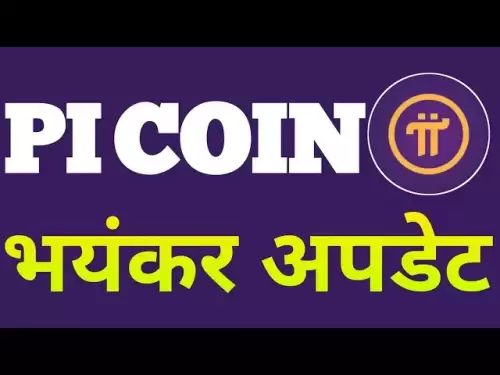-
 Bitcoin
Bitcoin $106,520.1342
2.17% -
 Ethereum
Ethereum $2,639.5900
4.06% -
 Tether USDt
Tether USDt $1.0007
0.05% -
 XRP
XRP $2.2341
3.97% -
 BNB
BNB $667.4277
1.88% -
 Solana
Solana $162.4047
6.44% -
 USDC
USDC $0.9998
-0.01% -
 Dogecoin
Dogecoin $0.1973
3.40% -
 TRON
TRON $0.2715
1.69% -
 Cardano
Cardano $0.6925
3.25% -
 Hyperliquid
Hyperliquid $37.9127
14.44% -
 Sui
Sui $3.3114
1.27% -
 Chainlink
Chainlink $14.3556
4.97% -
 Avalanche
Avalanche $21.4446
4.70% -
 Stellar
Stellar $0.2747
3.56% -
 UNUS SED LEO
UNUS SED LEO $8.7797
5.30% -
 Bitcoin Cash
Bitcoin Cash $407.0257
2.08% -
 Toncoin
Toncoin $3.2008
0.75% -
 Shiba Inu
Shiba Inu $0.0...01328
3.62% -
 Hedera
Hedera $0.1749
3.74% -
 Litecoin
Litecoin $89.8807
2.00% -
 Polkadot
Polkadot $4.1839
4.05% -
 Monero
Monero $348.2224
-4.76% -
 Ethena USDe
Ethena USDe $1.0013
0.03% -
 Bitget Token
Bitget Token $4.8829
4.07% -
 Pepe
Pepe $0.0...01282
9.85% -
 Dai
Dai $1.0001
0.03% -
 Pi
Pi $0.6536
1.67% -
 Uniswap
Uniswap $6.8076
8.94% -
 Aave
Aave $271.3209
8.65%
MetaMask balance is not synchronized. Is the RPC node stable?
MetaMask balance not syncing? It might be due to an unstable RPC node. Try refreshing, switching nodes, or using blockchain explorers to verify your balance.
May 12, 2025 at 12:43 pm
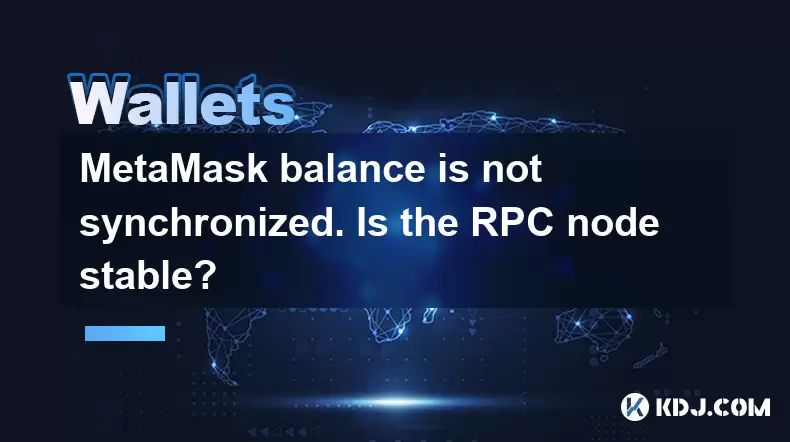
Understanding the MetaMask Balance Synchronization Issue
When users encounter a situation where their MetaMask balance is not synchronized, it can lead to confusion and concern about the security and accuracy of their cryptocurrency holdings. This issue typically manifests as a discrepancy between the balance shown in MetaMask and the actual balance on the blockchain. One of the potential causes of this problem is the stability of the RPC (Remote Procedure Call) node that MetaMask uses to interact with the Ethereum blockchain.
What is an RPC Node and Its Role in MetaMask?
An RPC node is a server that allows MetaMask to communicate with the Ethereum blockchain. It acts as an intermediary, fetching data from the blockchain and relaying it back to the user's wallet. The stability and performance of the RPC node are crucial because they directly affect the accuracy and timeliness of the data MetaMask displays. If the RPC node is unstable, it may fail to fetch the latest blockchain data, leading to a balance that is not synchronized.
How to Check the Stability of an RPC Node
To determine if the RPC node is stable, users can follow these steps:
Check the Node's Status: Many RPC node providers offer status pages or dashboards where users can check the current health and performance of the node. Look for uptime statistics, latency, and any reported issues.
Use a Different RPC Node: MetaMask allows users to switch between different RPC nodes. By trying an alternative node, you can see if the balance synchronization issue persists. If the balance updates correctly with a different node, it suggests that the original node was unstable.
Monitor Transaction Speeds: If transactions are taking longer than usual to confirm, it could indicate that the RPC node is experiencing issues. You can use blockchain explorers to compare transaction speeds with other nodes.
Troubleshooting MetaMask Balance Synchronization
If you suspect that the RPC node's stability is causing the balance synchronization issue, here are some steps to troubleshoot and potentially resolve the problem:
Refresh the Wallet: Sometimes, simply refreshing the wallet can resolve temporary synchronization issues. Click on the account icon and select "Refresh" to update the balance.
Switch to a Different Network: MetaMask allows you to switch between different Ethereum networks. Try switching to a testnet or a different RPC node to see if the balance updates correctly.
Clear Cache and Data: Clearing the cache and data of the MetaMask extension or app can help resolve issues caused by corrupted data. Be sure to back up your seed phrase before doing this.
Check for Software Updates: Ensure that MetaMask is running the latest version, as updates often include fixes for known issues. You can check for updates in the browser's extension store or the app store on your mobile device.
Alternative Solutions for Balance Synchronization
If the RPC node stability is not the root cause of the balance synchronization issue, consider these alternative solutions:
Use a Hardware Wallet: Hardware wallets like Ledger or Trezor can provide an additional layer of security and often have their own methods for checking balances, which may be more reliable.
Utilize Blockchain Explorers: Directly checking your wallet address on a blockchain explorer like Etherscan can confirm your actual balance on the blockchain, bypassing any issues with MetaMask or the RPC node.
Contact MetaMask Support: If the issue persists, reaching out to MetaMask's support team can provide further assistance. They can help diagnose whether the problem is related to the wallet software or the RPC node.
Verifying the Accuracy of Your MetaMask Balance
To ensure the accuracy of your MetaMask balance, follow these steps:
Cross-Reference with Blockchain Explorers: Enter your wallet address into a blockchain explorer to verify the balance shown matches what MetaMask displays.
Check Multiple Sources: Use different RPC nodes and blockchain explorers to confirm the balance. If multiple sources show the same balance, it is likely accurate.
Monitor for Updates: Keep an eye on the MetaMask interface for any updates or notifications about balance changes. If the balance suddenly updates, it could indicate that the RPC node has resolved its issues.
Frequently Asked Questions
Q: Can a slow internet connection affect MetaMask balance synchronization?
A: Yes, a slow internet connection can impact the speed at which MetaMask communicates with the RPC node, potentially leading to delays in balance synchronization. Ensure your internet connection is stable and fast enough to handle blockchain data requests.
Q: Is it possible for the MetaMask balance to be incorrect due to a security breach?
A: While rare, it is possible for a security breach to affect the data displayed in MetaMask. Always ensure you are using the official MetaMask software and keep your seed phrase secure to minimize this risk.
Q: How often should I check my MetaMask balance to ensure it is synchronized?
A: It is a good practice to check your MetaMask balance regularly, especially after making transactions. If you notice discrepancies, try the troubleshooting steps mentioned earlier to resolve the issue.
Q: Can using a VPN affect the stability of the RPC node connection in MetaMask?
A: Yes, using a VPN can sometimes affect the connection to the RPC node, leading to potential synchronization issues. If you experience problems, try disabling the VPN to see if it resolves the issue.
Disclaimer:info@kdj.com
The information provided is not trading advice. kdj.com does not assume any responsibility for any investments made based on the information provided in this article. Cryptocurrencies are highly volatile and it is highly recommended that you invest with caution after thorough research!
If you believe that the content used on this website infringes your copyright, please contact us immediately (info@kdj.com) and we will delete it promptly.
- Solana (SOL) Breaks Above Ichimoku Cloud, Targeting $211 Resistance
- 2025-06-03 22:25:13
- AI Has Moved Beyond Just Talk. It Is Now Driving Real Change for Crypto Projects
- 2025-06-03 22:25:13
- Lakshmi Coin ($LUCK) Unites Ethical Finance with Global Impact
- 2025-06-03 22:20:13
- Over 20B BlockDAG Coins Sold As Buyer Battles Ramp Up Amid ETH Mainnet Upgrades & PI Price Predictions
- 2025-06-03 22:20:13
- XRP Overtakes USDT to Become the Third-Largest Cryptocurrency by Market Capitalization
- 2025-06-03 22:15:12
- Tron Overtakes Ethereum as the Dominant Network for Tether (USDT)
- 2025-06-03 22:15:12
Related knowledge
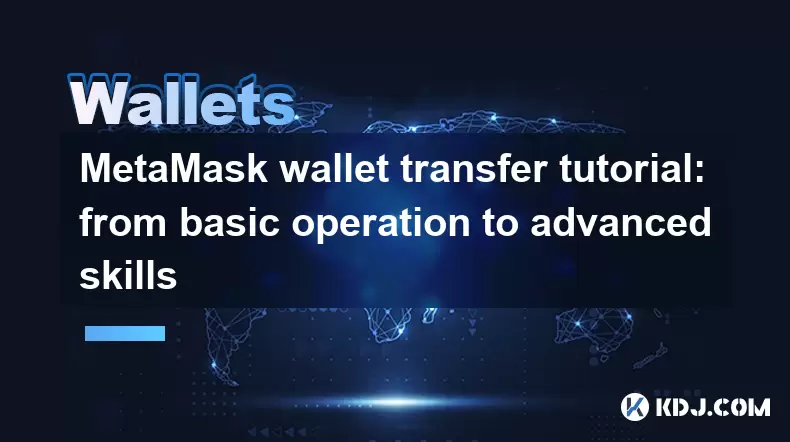
MetaMask wallet transfer tutorial: from basic operation to advanced skills
Jun 02,2025 at 01:50pm
MetaMask is a popular cryptocurrency wallet that allows users to manage their digital assets on the Ethereum blockchain and other compatible networks. This tutorial will guide you through the basic operations of transferring funds with MetaMask, as well as delve into more advanced skills to enhance your experience. Setting Up Your MetaMask WalletBefore ...
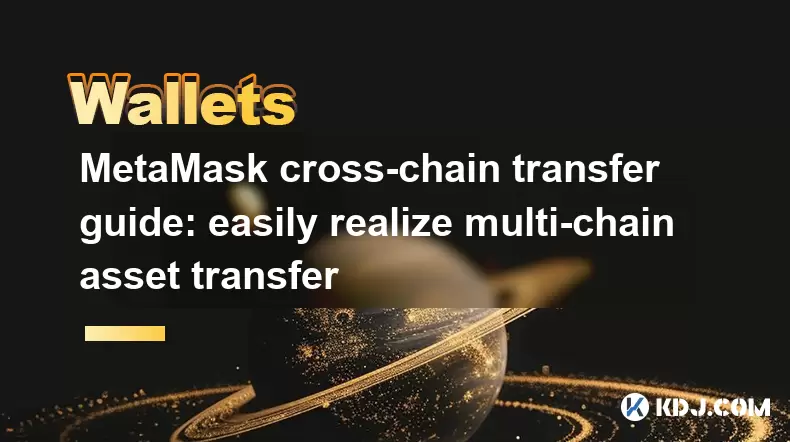
MetaMask cross-chain transfer guide: easily realize multi-chain asset transfer
Jun 02,2025 at 09:28pm
MetaMask is a popular cryptocurrency wallet that supports a variety of blockchain networks, making it an ideal choice for users looking to manage their assets across multiple chains. In this guide, we will walk you through the process of performing cross-chain transfers using MetaMask, ensuring you can easily realize multi-chain asset transfer. Understa...
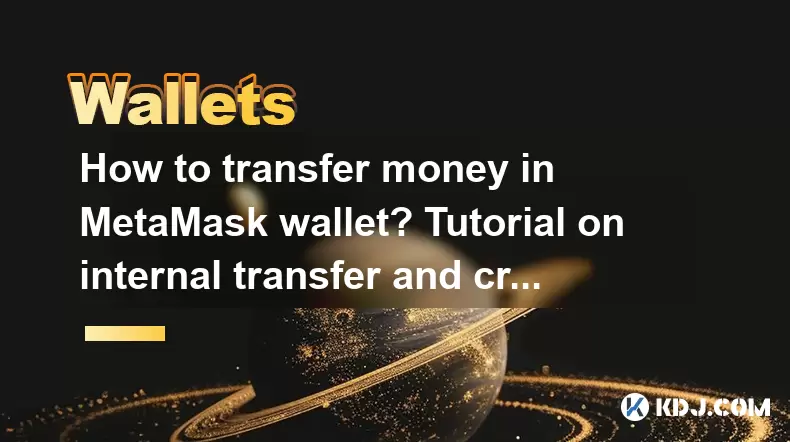
How to transfer money in MetaMask wallet? Tutorial on internal transfer and cross-chain operation
Jun 03,2025 at 07:21pm
Transferring money within the MetaMask wallet can be essential for managing your cryptocurrency assets efficiently. Whether you're looking to move funds between your own accounts or send them to another user, understanding the process is crucial. This tutorial will guide you through the steps for internal transfers within the same blockchain and cross-c...
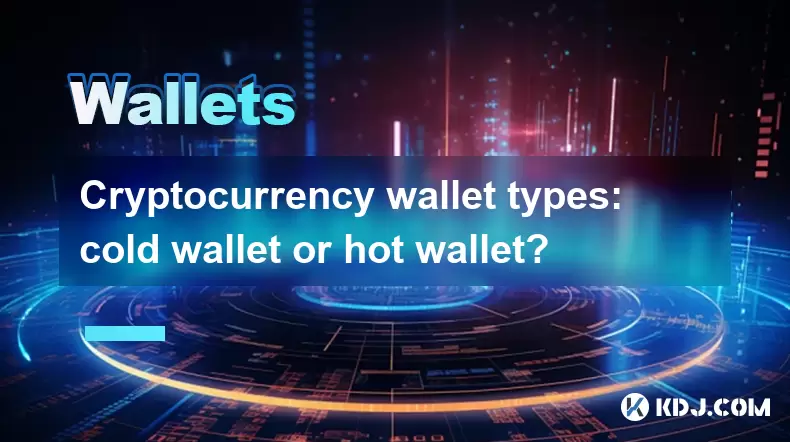
Cryptocurrency wallet types: cold wallet or hot wallet?
May 30,2025 at 02:01pm
Cryptocurrency wallets are essential tools for managing and securing your digital assets. When it comes to choosing a wallet, one of the key decisions you'll face is whether to opt for a cold wallet or a hot wallet. Each type has its own set of advantages and drawbacks, and understanding these can help you make an informed decision that best suits your ...
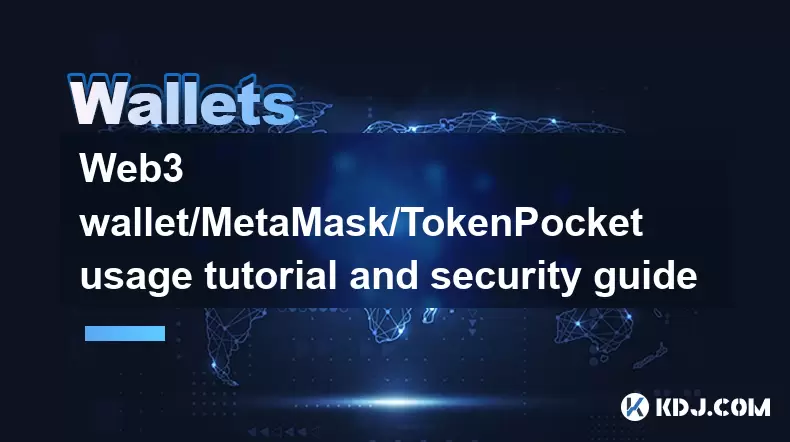
Web3 wallet/MetaMask/TokenPocket usage tutorial and security guide
May 29,2025 at 08:03pm
Web3 wallets such as MetaMask and TokenPocket are essential tools for interacting with the decentralized web and managing your cryptocurrencies. This tutorial will guide you through the process of setting up and using these wallets, as well as providing a comprehensive security guide to help protect your assets. Setting Up MetaMaskSetting up MetaMask is...
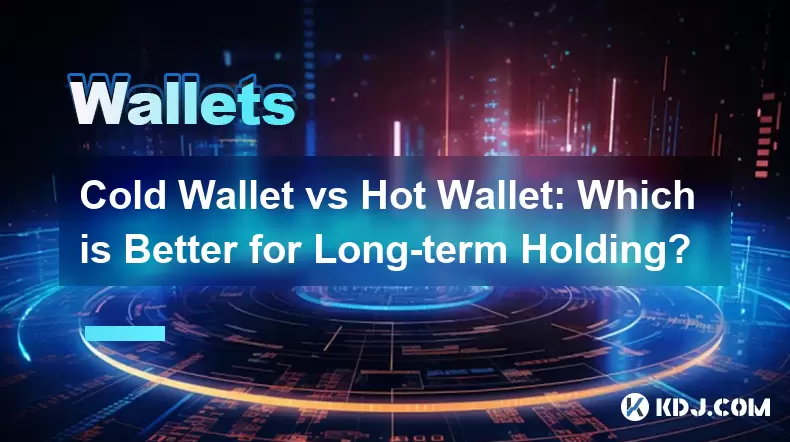
Cold Wallet vs Hot Wallet: Which is Better for Long-term Holding?
May 24,2025 at 01:35pm
When considering the best method for long-term holding of cryptocurrencies, the choice between a cold wallet and a hot wallet is critical. Cold wallets, also known as hardware wallets, store your private keys offline, making them highly secure against online threats. On the other hand, hot wallets are connected to the internet and are more convenient fo...

MetaMask wallet transfer tutorial: from basic operation to advanced skills
Jun 02,2025 at 01:50pm
MetaMask is a popular cryptocurrency wallet that allows users to manage their digital assets on the Ethereum blockchain and other compatible networks. This tutorial will guide you through the basic operations of transferring funds with MetaMask, as well as delve into more advanced skills to enhance your experience. Setting Up Your MetaMask WalletBefore ...

MetaMask cross-chain transfer guide: easily realize multi-chain asset transfer
Jun 02,2025 at 09:28pm
MetaMask is a popular cryptocurrency wallet that supports a variety of blockchain networks, making it an ideal choice for users looking to manage their assets across multiple chains. In this guide, we will walk you through the process of performing cross-chain transfers using MetaMask, ensuring you can easily realize multi-chain asset transfer. Understa...

How to transfer money in MetaMask wallet? Tutorial on internal transfer and cross-chain operation
Jun 03,2025 at 07:21pm
Transferring money within the MetaMask wallet can be essential for managing your cryptocurrency assets efficiently. Whether you're looking to move funds between your own accounts or send them to another user, understanding the process is crucial. This tutorial will guide you through the steps for internal transfers within the same blockchain and cross-c...

Cryptocurrency wallet types: cold wallet or hot wallet?
May 30,2025 at 02:01pm
Cryptocurrency wallets are essential tools for managing and securing your digital assets. When it comes to choosing a wallet, one of the key decisions you'll face is whether to opt for a cold wallet or a hot wallet. Each type has its own set of advantages and drawbacks, and understanding these can help you make an informed decision that best suits your ...

Web3 wallet/MetaMask/TokenPocket usage tutorial and security guide
May 29,2025 at 08:03pm
Web3 wallets such as MetaMask and TokenPocket are essential tools for interacting with the decentralized web and managing your cryptocurrencies. This tutorial will guide you through the process of setting up and using these wallets, as well as providing a comprehensive security guide to help protect your assets. Setting Up MetaMaskSetting up MetaMask is...

Cold Wallet vs Hot Wallet: Which is Better for Long-term Holding?
May 24,2025 at 01:35pm
When considering the best method for long-term holding of cryptocurrencies, the choice between a cold wallet and a hot wallet is critical. Cold wallets, also known as hardware wallets, store your private keys offline, making them highly secure against online threats. On the other hand, hot wallets are connected to the internet and are more convenient fo...
See all articles

















